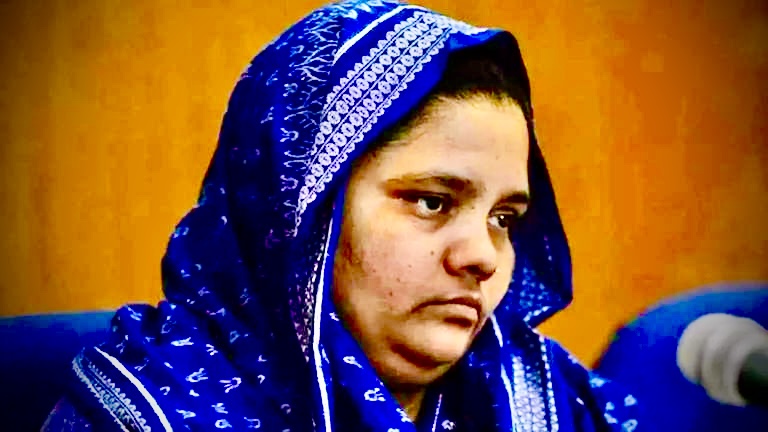The Supreme Court delivered a critical judgment, overturning the Gujarat government’s decision to grant remission to 11 convicts involved in the notorious case of the gangrape of Bilkis Bano and the brutal murder of seven of her family members during the 2002 riots in the state.
The court, comprising Justices B V Nagarathna and Ujjal Bhuyan, deemed the PIL challenging the remission maintainable. They highlighted that the Gujarat government lacked the authority to pass the remission order and criticized its decision, asserting that it was made without due consideration. The court noted a lack of application of mind by the state government in granting remission to the convicts, emphasizing that this action effectively aligned the government’s stance with that of the convicts.
Furthermore, the apex court firmly declared that the convicts, whose remission had been quashed, must return to jail within two weeks. It highlighted the jurisdictional aspect, affirming that it was the responsibility of the government within whose jurisdiction the offender was tried and sentenced to decide on their remission.
Additionally, the court found fault with the Gujarat government for overstepping its authority by deciding the remission plea, which fell within the jurisdiction of the Maharashtra government, where the trial was conducted. The verdict emphasized that one of the convicts had misled the court by suppressing facts, obtaining a judgment based on fraudulent representations.
Bilkis Bano’s tragic tale unfolded during the 2002 riots when, at 21 years old and pregnant, she was gang-raped while fleeing the communal unrest triggered by the Godhra train-burning incident. Tragically, her three-year-old daughter was among the seven family members who lost their lives during the riots.
The convicts, originally released on August 15, 2022, following the Gujarat government’s decision to grant them remission, now face a directive from the Supreme Court to return to jail promptly.
The legal proceedings surrounding this case were marked by intense scrutiny and questions raised by the apex court. Notably, discussions pondered the fundamental right of convicts to seek remission, stressing the importance of impartiality in the process and advocating for equal opportunities for prisoner reform and reintegration into society.
Several PILs, including ones filed by prominent figures like CPI(M) leader Subhashini Ali, journalist Revati Laul, former Lucknow University vice-chancellor Roop Rekha Verma, and TMC leader Mahua Moitra, challenged the premature release of the convicts, adding complexity to the legal battle.
This case, originating from the horrific events of the 2002 riots, gained national attention due to the nature of the crime and the subsequent remission granted by the Gujarat government. The Supreme Court’s verdict, overturning this decision, signifies a pivotal moment in the pursuit of justice for Bilkis Bano and her family, ensuring that those responsible are held accountable within the confines of the law.

